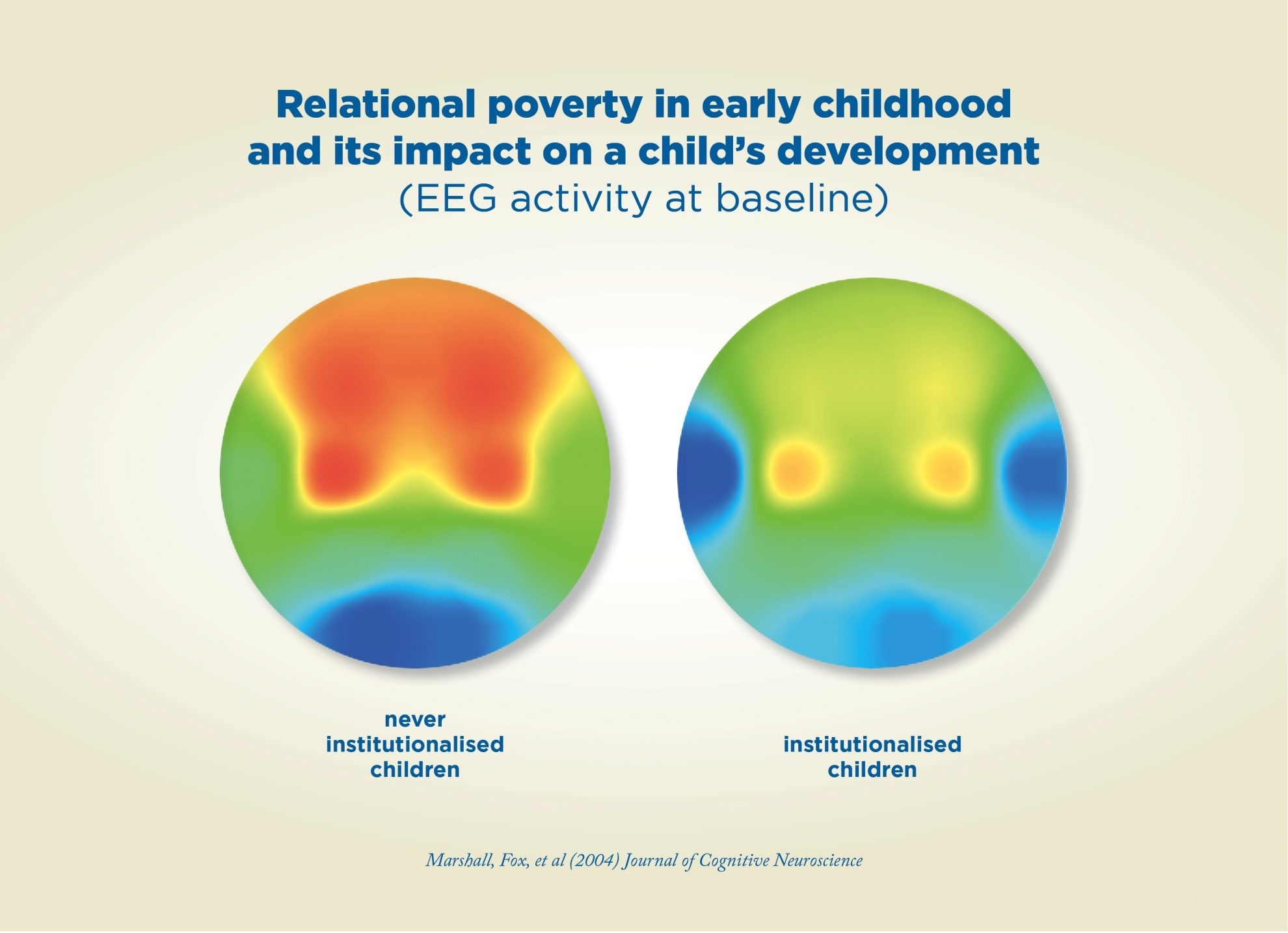Early psychological deprivation has profound effects on brain activity in young children, as demonstrated in the two images which detail the electroencephalogram level (EEG level) of an institutionalised child compared to a child who has never been institutionalised.
The institutionalised child’s brain showed a pattern of increased low-frequency (theta) power in posterior scalp regions and decreased high-frequency (alpha and beta) power, particularly at frontal and temporal electrode sites, as illustrated by the different colours.
In other words, the lack of red in the image of the brain of an institutionalised child represents limited brain activity, reflecting a maturational lag in the development of the nervous system.

Source: Marshall Fox 2004, A comparison of the Electroencephalogram between institutionalised and Community Children in Romania, Journal of Cognitive Neuroscience